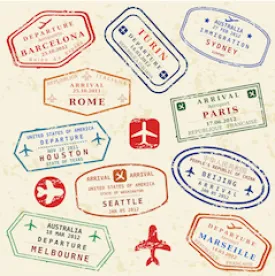In response to the Ebola epidemic, Canada, Australia and Singapore have all implemented immigration restrictions on citizens from Guinea, Liberia and Sierra Leone. Other countries are expected to implement similar restrictions.
Starting today, Singapore requires all citizens of Ebola-stricken countries to obtain entry visas before they can be admitted into the country – previously visas were not required. In a statement released by Singapore’s Ministry of Health, it was noted that “the visa requirement will allow for better oversight of the entry of nationals from these countries, as well as facilitate possible contact tracing.” This initiative by Singapore follows two suspected Ebola cases being reported in the country.
Australia and Canada have taken more strident action than Singapore in response to the Ebola outbreak by imposing a complete visa ban against travelers from Liberia, Guinea and Sierra Leone. In addition to banning travel from Ebola-hit countries, Canada has also prohibited any travel from the country into these countries in an attempt to inoculate Canada against Ebola. Critics of Canada’s travel restrictions into the West Africa region, including the U.N. Secretary General, claim that the visa ban prevents foreign-trained health workers from providing much needed help to curb the disease in the region. The World Health Organization (WHO) is staunchly opposed, claiming Canada’s decision to ban travel from Ebola-stricken countries contravenes the International Health Regulations Treaty, of which Canada is a signatory. This Treaty holds that no country can take measures that are stronger than those approved by the WHO without presenting it first with scientific and public health reasons for such actions.
The United States has considered imposing a complete visa ban against citizens of Liberia, Guinea and Sierra Leone as well as travel by U.S. citizens into the region; however, it has so far resisted taking such action and, instead, has implemented extra measures to screen airline passengers for Ebola. Specifically, U.S. Customs and Border Protection (CBP) has deployed enhanced passenger screening at five U.S. airports for any traveler who is seeking admission into the United States from or through an Ebola-affected country. The five airports, which account for over 94% of travelers from the affected region into the United States, are: New York’s John F. Kennedy International Airport, Chicago’s O’Hare International Airport, Dulles International Airport in Virginia, Atlanta’s Hartsfield Jackson International Airport, and Newark International Airport in New Jersey. The following measures at these airports are now in place:
-
Identifying and intercepting travelers from the Ebola-affected countries
-
Isolating these travelers and having them complete a questionnaire and contact information form
-
Having medically-trained personnel take affected travelers’ temperature. Referring any traveler with a fever or other Ebola-like symptoms to the Center for Disease Control (CDC) for a public health assessment. CDC will then determine whether affected travelers are free to travel, or if they should be hospitalized for further evaluation or referred to a local health department for further monitoring
-
Encouraging the traveler to seek health care at the first sign of any potential illness
The Department of Homeland Security (DHS) has also put in place measures to identify and screen travelers from Guinea, Liberia and Sierra Leone who arrive at all land, sea and air ports into the United States. These include re-routing all flights from Ebola-affected countries to one of the five airports listed above, as well as isolating affected travelers for additional screening.



 />i
/>i
